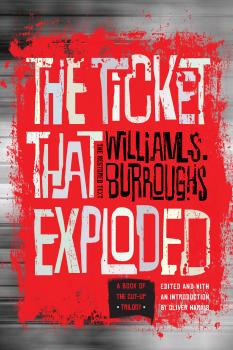Ingram
Все книги издательства IngramTaken (Book #2 of the Vampire Legends)
Rachel Wood finally learns the secret that her new boyfriend, Benji, has been hiding: he is a vampire. She discovers his world in the mysterious Lyndvia Castle on the Hudson River. But just as their romance is blossoming, Benji’s twin brother shows up with a message that might mean the end for them all. Rachel will have to decide how much she wants to sacrifice to be with the love of her life.
Small is Possible
–Author has won numerous awards, including Environmental Educator of the Year (2004), Family Friendly Workplace Award (2002), Citizen of the Year (2001), all based in North Carolina. -Wrote Biodiesel Power (New Society, 2005), now in its second printing -The book focuses on positive solutions to actual problems that take place at the community level. -It contains newspapers columns, blog entries, interesting emails, and essays from real people and situations taken from Moncure, North Carolina -Areas of promotion will include tie-ins to the Slow Food Movement, the 100-mile diet, and biodiesel co-ops. -Examples of self-sustaining efforts include: • The story of BLAST, the little software company that started changing the complexion of the town. • Moncure Chessworks, a vibrant sculpture studio, and a look at Chatham Arts. • Piedmont Biofuels Industrial: How a desire to make enough biodiesel to power a tractor grew into the largest biodiesel coop in America, meeting the fuel needs of a few hundred
The Long Descent
SeattleOil.com  The Internet writings of John Michael Greer – beyond any doubt the greatest peak oil historian in the English language – have finally made their way into print. Greer fans will recognize many of the book's passages from previous essays, but will be delighted to see them fleshed out here with additional examples and analysis.The Long Descent is one of the most highly anticipated peak oil books of the year, and it lives up to every ounce of hype. Greer is a captivating, brilliantly inventive writer with a deep knowledge of history, an impressive amount of mechanical savvy, a flair for storytelling and a gift for drawing art analogies. His new book presents an astonishing view of our society's past, present and future trajectory–one that is unmatched in its breadth and depth. Reviewed by Frank Kaminski Wired.com  The Long Descent is a welcome antidote to the armageddonism that often accompanies peak oil discussions. «The decline of a civilization is rarely anything like so sudden for those who live through it» writes Greer, encouragingly; it's «a much slower and more complex transformation than the sudden catastrophes imagined by many soical critics today.»The changes that will follow the decline of world petroleum production are likely to be sweeping and global, Greer concludes, but from the perspective of those who live through them these changes are much more likely to take gradual and local forms. Reviewed by Bruce Sterling Americans are expressing deep concern about US dependence on petroleum, rising energy prices, and the threat of climate change. Unlike the energy crisis of the 1970s, however, there is a lurking fear that now the times are different and the crisis may not easily be resolved. The Long Descent examines the basis of such fear through three core themes: Industrial society is following the same well-worn path that has led other civilizations into decline, a path involving a much slower and more complex transformation than the sudden catastrophes imagined by so many social critics today. The roots of the crisis lie in the cultural stories that shape the way we understand the world. Since problems cannot be solved with the same thinking that created them, these ways of thinking need to be replaced with others better suited to the needs of our time. It is too late for massive programs for top-down change; the change must come from individuals. Hope exists in actions that range from taking up a handicraft or adopting an “obsolete” technology, through planting an organic vegetable garden, taking charge of your own health care or spirituality, and building community. Focusing eloquently on constructive adaptation to massive change, this book will have wide appeal.
Industrial Evolution
The author publishes the widely-read Energy Blog, is the author of 2 previous books, including the predecessor to this book,Small is Possible. All photos in the book are by the author’s wife, Tami Schwerin. This book picks up where Small is Possible leaves off, tracing the story of how this small group of committed individuals survived the downturn of 2008, and emerged with a model of how industry might survive. This book proves that communities can be self-sufficient and resilient through hard times. The book offers many inspirational stories of perseverance, failure, success and real world experiences. It speaks to people who are looking for community and want to make it happen. Small is Possible’s real-life examples inspired many people to take action and this one will as well. The author has had extensive press experience, including a stint on Democracy Now with Amy Goodman. The author speaks at least weekly, everywhere from the Rotary Club to national conferences. The audience will be people who are interested in food security, renewable energy, sustainability and have a sense of social justice and equality.
The Wealth of Nature
John Michael Greer is the author of numerous books, dozens of articles and a weekly blog.His blog, The Archdruid Report, has become one of the most widely cited online resources dealing with peak oil and the future of industrial society. The author considers his traditional audience –adult, male, college educated, Internet savvy readers concerned about peak oil–will be interested, but this will also be a more mainstream book, geared to a broader audience interested in environmental issues. The sales hook of the book is this: The ongoing US economic downturn is proving the author’s thesis on why nobody can make the economy work. The old solution of throwing money in all directions is not viable. The root cause is the disconnected relationship between the productive economy and the natural world. This book analyzes the mistakes of contemporary economics, and proposes public policy initiatives and personal choices that will sustain us.The author is a frequent public speaker, has been on over 100 radio shows, and has had numerous reviews of his previous books.The author will be promoting his book online, via his blog and other venues.
Circle of Stones
This is the tenth anniversary edition of the classic bestseller for women seeking their sacred connections. Long ago before the patriarchal period, in many places on Earth, the Goddess was worshipped. Circle of Stones draws us into a meditative experience of the lost Feminine and creates a space for us to consider our present lives from the eyes of women's ancient culture and ritual. Incorporating the most ancient symbol of spirituality – the circle of stones – Duerk weaves stories, dreams, and visions of women to lead each reader into a personal yet archetypal journey, posing the reflective question, «How might your life have been different if . . . ?» Reading group guide included.
The Ticket That Exploded
In The Ticket That Exploded, William S. Burroughs’s grand “cut-up” trilogy that starts with The Soft Machine and continues through Nova Express reaches its climax as inspector Lee and the Nova Police engage the Nova Mob in a decisive battle for the planet. Only Burroughs could make such a nightmare vision of scientists and combat troops, of ad men and con men whose deceitful language has spread like an incurable disease be at once so frightening and so enthralling.
The Soft Machine
In Naked Lunch, William S. Burroughs revealed his genius. In The Soft Machine he begins an adventure that will take us even further into the dark recesses of his imagination, a region where nothing is sacred, nothing taboo. Continuing his ferocious verbal assault on hatred, hype, poverty, war, bureaucracy, and addiction in all its forms, Burroughs gives us a surreal space odyssey through the wounded galaxies in a book only he could create.









